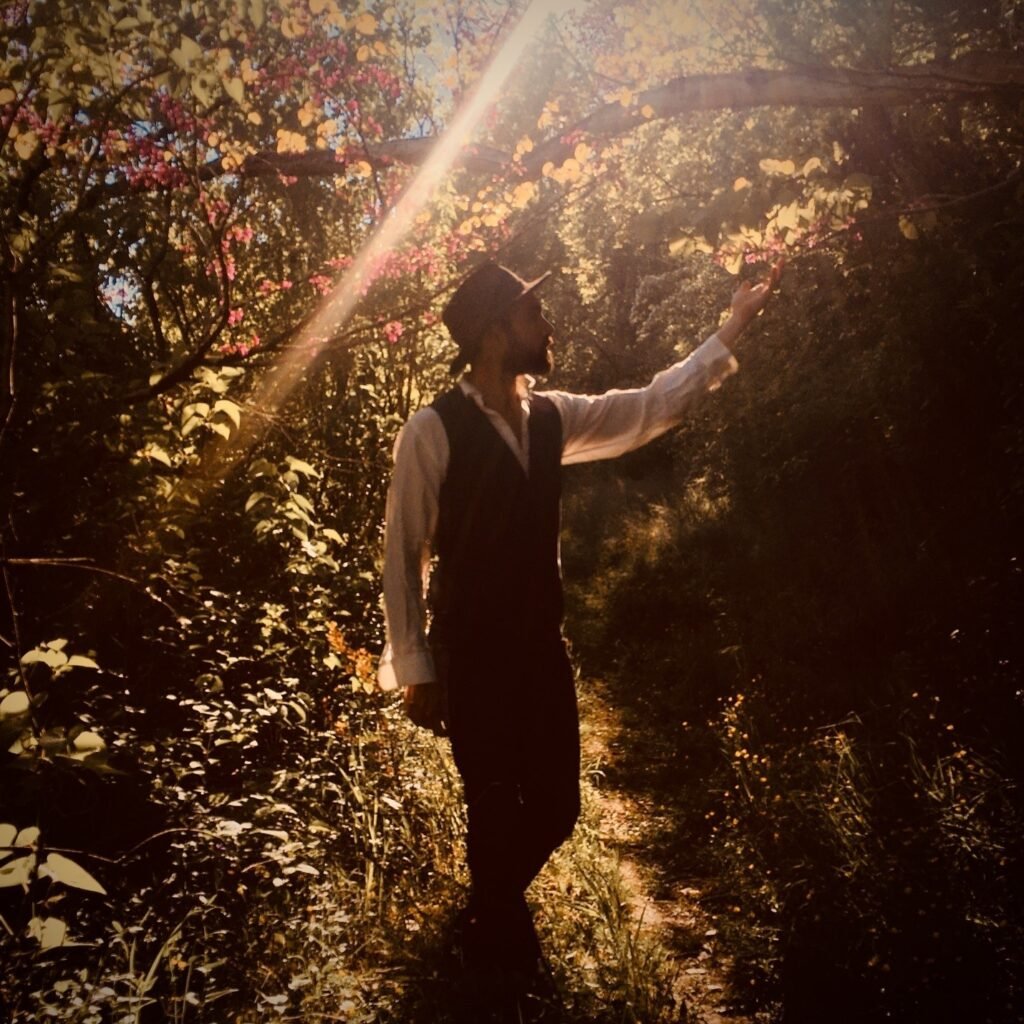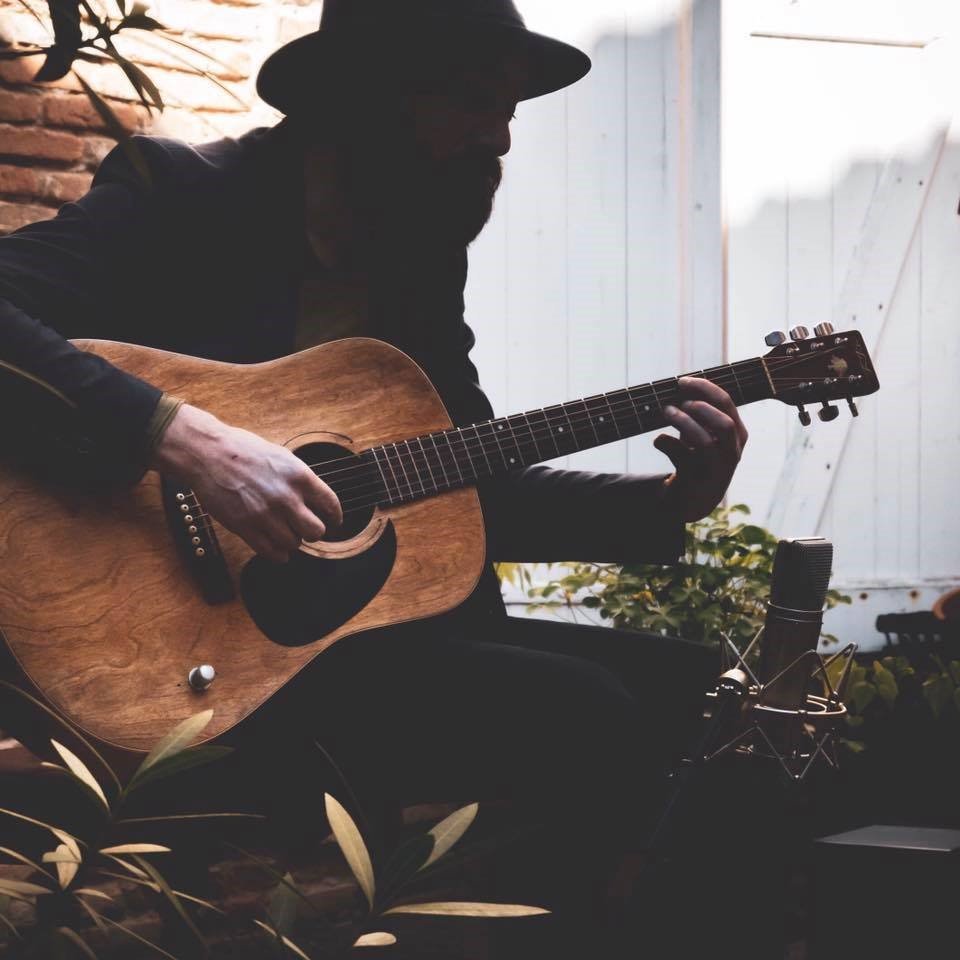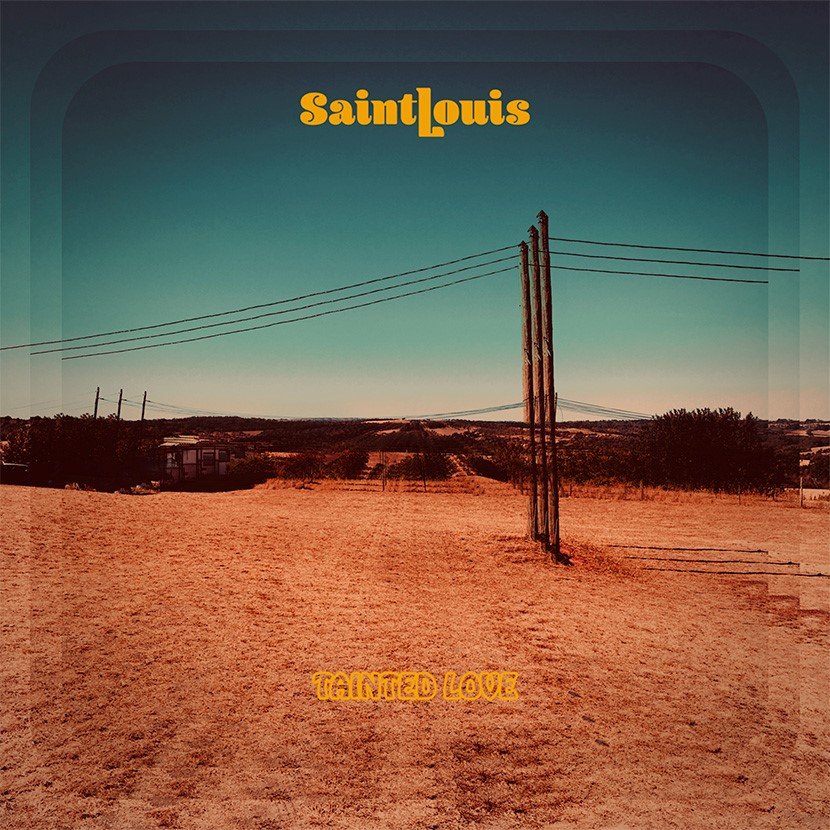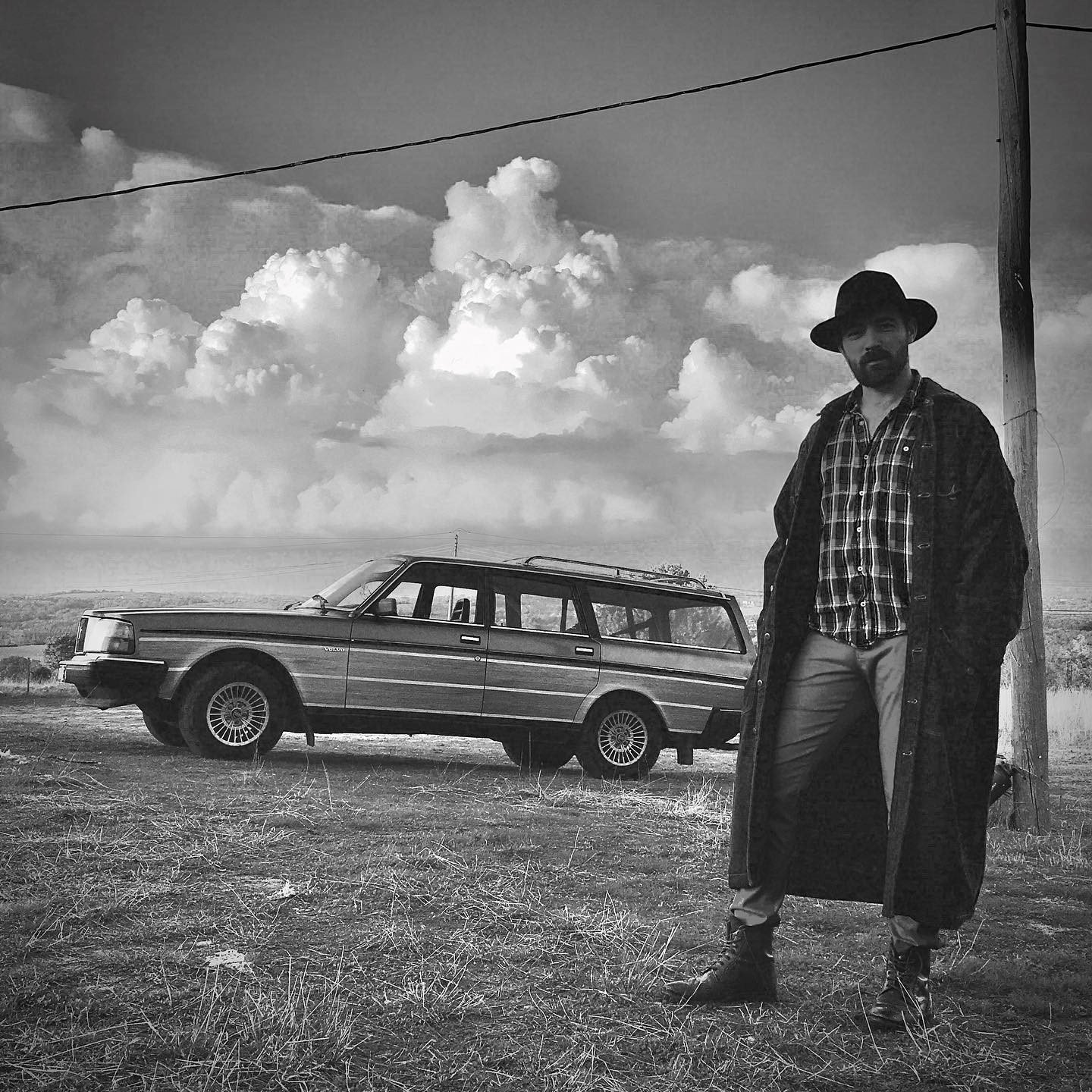Saint Louis is allowing his pop romanticism to run wild throughout a folk music that is swept along with arrangements that are occasionally choral and occasionally flowery and whose meticulous aesthetics draw a nostalgic architecture. Saint Louis emits an air of forbidden loves, glorious adventures, and angelic troubles “sur fond d’azur de Louisiane,” deftly blending gospel and hippy, a warm and delicate timbre under a languorous pen borrowed from Californian songwriters of the 1970s.
After spending years touring or recording with various bands, Saint Louis started to write a few songs for a solo act. He first created an EP titled “Philters,” which he would ultimately never release because he chose to expand it into an LP format, being deeply influenced by folk poetry from Nick Drake to Jim Sullivan and Graham Nash. Thus, he keeps his attention on using the same creative process consistently: first, recording a guitar without using a metronome, followed by adding drums. The rest of the arrangement flows naturally from there. The music then contains the living movement he adores so much: the unique sound of analog tapes as an Aphrodite and the breathing of tempo as Galatea. Additionally, because he often receives songs in the form of a large-scale visual composition, akin to a piece of architecture, the texts are all the more poetic and consequently inseparable from the melodies and sounds.
Saint Louis releases Tainted Love, a song from his first EP, FolkMe. The multi-instrumentalist has fun traveling through the ages with his arrangements, which can be flowery or raw depending on what he has in mind. This final single thus concludes a mini-series of video-covers. Saint Louis re-arranges a world-famous piece of soul, sung by Gloria Jones in 1965, after stripping Hozier’s planetary Take Me To Church and painting Birkin’s Ex-fan of the Sixties in the manner of Melody Nelson. The French artist brings this mythical classic to the great American spaces with a kind of Pop-Americana/Crazy Indie style, between a phlegmatic Beck and a ballad by Pink Floyd on Meddle. It has been covered numerous times, most notably by Soft Cell and Marilyn Manson. While highlighting the wry feeling expressed in the lyrics, the song develops a chic and laid-back nostalgic vibe. Check out the song and the exclusive interview below:

1. Can you tell us a bit about where you come from and how it all got started?
SAINT LOUIS: I was born on the Atlantic coast of France in the early 80s,then I grew up in the countryside, in a fairly peaceful environment from which I still remember warm Sunday afternoons and charming white winters. As far back as I can remember, I’ve always played music and imitated singers on Saturday night TV shows.
2. Did you have any formal training or are you self-taught?
SAINT LOUIS: In fact, I never took lessons from any teacher. I get more excited by finding answers on my own from personal experience. I try to build my own truth from the bottom of my soul.
3. Who were your first and strongest musical influences and why the name ‘SAINT LOUIS’?
SAINT LOUIS: I consider Pink Floyd’s Meddle to be the greatest monument of my musical universe. It’s rich in colors of all temperatures, really groovy and atmospheric at the same time, long and short… it’s kind of everything, an absolute gem! Even if I can’t do without Neil Young’s Harvest, Jim Sullivan’s UFO or Nick Drake’s Pink Moon and many others… Meddle was one of my mother’s records. And why Saint Louis? Because my grandfather, also a musician, was called Louis, and because I want to preach love before the next world civil war.
4. What do you feel are the key elements in your music that should resonate with listeners, and how would you personally describe your sound?
SAINT LOUIS: It is undoubtedly the simple vision of a trip. How time stretches when you travel. How the landscapes move and ultimately turn out to be so different from far to far. How people are mostly just embodied landscapes. How your own emotions are at the mercy of your vehicle and the weather. It’s the key to my poetry and therefore to my music I guess. Travel and vision.

5. Do you think is it important for fans of your music to understand the real story and message driving each of your songs, or do you think everyone should be free to interpret your songs in their own personal way?
SAINT LOUIS:
If “everyone must be free…”? God yes! Some of my stories are so intimate that they themselves are modest. So not everyone understands exactly the same things as me when you listen to it. But that’s the big affair! Listeners can imagine whatit’s really about, guess the meaning with their own instincts, and that’s a way for the art to emerge. When it’s quite familiar and cozy but weird atthe same time. When it’s maybe quite sexy but different. When you start to think for yourself in front of what we should call an artistic proposal. When it’s near but almost elusive. So yes, everyone is free to interpret what’s going on, and that’s the start ofthe real story until it becomes universal or not.
6. What’s your view on the role and function of music as political, cultural, spiritual, and/or social vehicles – and do you try and affront any of these themes in your work, or are you purely interested in music as an expression of technical artistry, personal narrative, and entertainment?
SAINT LOUIS:
It’s interesting how it’s often suggested that there is an obvious difference between politics, culture, spirituality and entertainment, personal things and art. For me, it all belongs to the same thing : present reality. It’s not a choice. When you separate one from the others, it makes changes on each of them. Art is the expression of the present reality, and this reality is made of politics, culture, spirituality, personal things, entertainment… Once that’s said, you can add taboos and deny some parts, butthey’re related and real.
7. Do you feel that your music is giving you back just as much fulfillment as the amount of work you are putting into it or are you expecting something more, or different in the future?
SAINT LOUIS:
Well, I feel pretty lucky to have this natural flow of music in my ears and know how to get it out on tape. I feel really good, and a bit proud, to share the result with my living companions. It’s true that I spend countless hours detailing every element, every link, every color and reaction. You could say it’s hard work. My mind is more focused on this job than on how much money or fame I get. Either way, these days you can have the fame and the money with just a bathing suit and a cell phone.
8. Could you describe your creative processes? How do usually start, and go about shaping ideas into a completed song? Do you usually start with a tune, a beat, or a narrative in your head? And do you collaborate with others in this process?
SAINT LOUIS:
I have my secret process… Ok, so, I always start with a folk guitar because everything is already there. That’s the thing with the guitar. We can deduce the beats ofthe snare drum, the bass line, the harmonies of the keyboards etc… It’s magic! When you’ve found something that seems to match your sensibilities, you feel safer writing and singing what your dreamy mind gives you. What follows after thatis just production and aesthetic tastes.
9. What has been the most difficult thing you’ve had to endure in your life or music career so far?
SAINT LOUIS: Be alone! …even in the middle of a stage. No work partners, no production team, no friends to push you further… that’s the hardest thing for me.
10. On the contrary, what would you consider a successful, proud or significant point in your life or music career so far?
SAINT LOUIS: When a kid stops his parents in front of me to hear my songs longer. (and sometimes I sing him what the hell is about with teargas today and tomorrow…)
KEEP IN TOUCH:
FACEBOOK | INSTAGRAM | TWITTER | SPOTIFY | TIKTOK | WEBSITE | YOUTUBE

Photo credits: MérylMontagné

